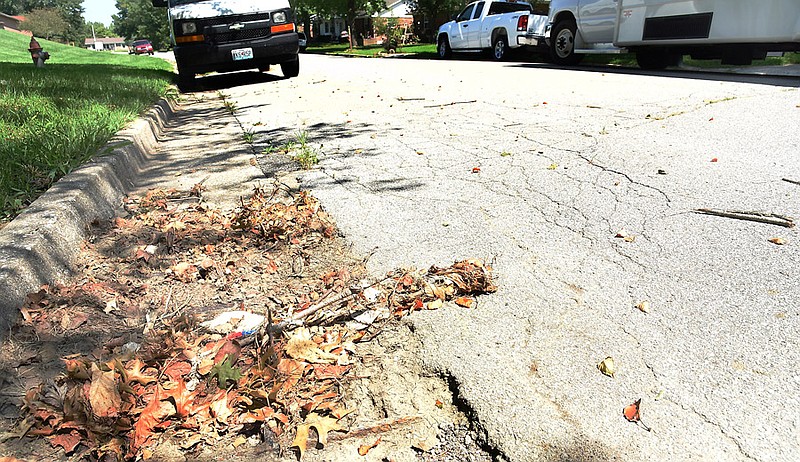The Jefferson City Council will hold a work session next month to prioritize capital projects as the list continues to grow but funding shrinks.
The city's Public Works Committee moved for the work session Thursday after Public Work Department staff told council members the downtown streetscape and electric project was $153,000 short.
The council set aside $640,000 for the project in November, which would repair the streets and sidewalks in portions along East High Street between Adams to Washington streets and in the 200 block of Madison Street. The council also requested city staff include event electric options in the project, putting some of that money toward design fees.
The city paid $18,000 of the $640,000 for the electrical system engineering, leaving $622,000 for the project. However, the bids for the project came in higher than anticipated - about $775,000 total for the project.
Public Works Director Matt Morasch said staff needs an additional $153,000 just to complete the basic sidewalk and street repairs.
If the council wants to include electrical options for festivals, the price tag could range from $63,000-$157,000 in addition to the needed $153,000, depending on where the city does the electric work.
These funds could be taken out of the city's unassigned general fund balance or sales tax.
Some council members said they would be OK if the supplemental appropriation came out of the sales tax, but others said they would feel more comfortable with the entire council's input, if it came from the unassigned general fund.
"I would hate to make a decision about this without the full council because we don't know other council (members') priorities," Ward 5 Councilman Larry Henry said.
The city has more than $6.1 million in its unaudited 2017 fiscal year unassigned general fund balance, but must maintain a minimum of 17 percent of the fiscal year's adopted budget - $5.5 million. This leaves about $655,000 for capital projects.
The city also anticipates reimbursements from FEMA and SEMA for the South Lincoln Street project this year.
However, there is a wish list of more than $23.4 million worth in capital projects, including the new Fire Station No. 2, construction on Monroe Street, stormwater projects and gap financing for condemned properties.
The city had more than $9.2 million in its unassigned general fund balance in the 2017 fiscal year, but the council approved almost $3.1 million in supplemental appropriations for capital projects. This included partial funds for the new Fire Station No. 2 and funds for stormwater improvements, the port feasibility study and the downtown streetscape project.
The half-cent capital improvement tax could cover some of the listed projects, but others would require the unassigned general fund balance.
Earlier this month, the Jefferson City Finance Committee directed city staff to highlight which projects could be funded through the sales tax to help with prioritizing projects.
City Administrator Steve Crowell said Thursday staff had the projects separated into sales tax and unassigned general fund balance categories but needed more time to update and analyze the list before a council work session.
"We've got tens of millions of dollars' worth of projects, equipment, vehicles that need replacement, and we don't have that much money," Ward 3 Councilman Ken Hussey said. "We just need to prioritize because sometimes we get a little short-sighted - we deal with what's on fire right now, not literally. (City) staff has this long-term perspective of things that may not be urgent this year or next year but are looming, and we'll have to address them at some point."
While not all the projects on the list are urgent, Ward 1 Councilman Rick Prather said the council needs to decide which ones need immediate funding.
"We need to consider the effects funding one project will have on other projects," he said earlier this month. "I think it's necessary we (prioritize the projects) so we don't get ahead of ourselves."
The City Council work session is tentatively scheduled for March 12.
Morasch said it was important the council at least repair the streets and sidewalks. City Engineer David Bange said since the city knows there are safety issues with the sidewalks and has been waiting to repair them, it could open them up to legal issues.
Bange said it would also be difficult to do the street and sidewalk repairs and then the electrical work in the next few years.
"You might have to push it off until the next time, meaning the next time we need to redo the street in 15-20 years from now. It's not that you couldn't do it before then but it would be much more costly to do it because in some ways, we're already going to have the street torn up so (the electrical project) would kind of (be) absorbed in the overlay that we're going to do with this project anyway. If I were to come back and do it later, well then now I'm putting trenches in the street, which I'm going to have to then patch. It's going to cost more in that I'm going to have to tear up stuff more whereas if we had the whole street torn up already, then another little trench is no big deal."

